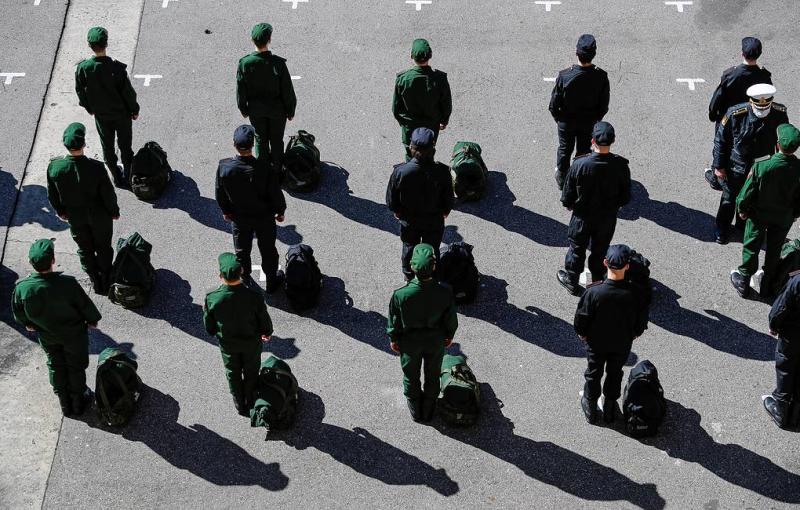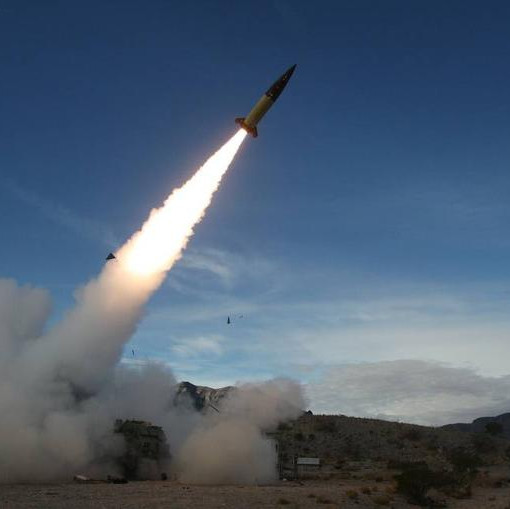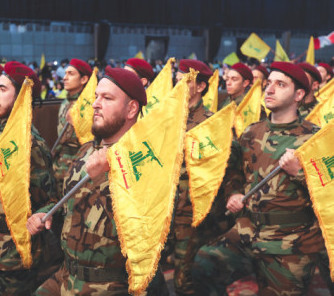
© Vitaly Nevar/TASS
Top stories from the Russian press on Thursday, September 22nd, prepared by TASS
Izvestia: Putin announces partial mobilization, sets out to call up 300,000 reservists
President Vladimir Putin announced the start of a partial call-up in Russia on September 21 due to the length of the line of military contact in Ukraine and the need to counter not only neo-Nazi formations, but the entire military machine of the collective West, Izvestia writes. Defense Minister Sergey Shoigu specified that about 300,000 people would be called up. Experts believe that the mobilization will primarily affect members of the ground and airborne forces.
In his address, Putin recounted the reasons for the special military operation. The goal of Western countries, he said, is to weaken, divide and ultimately destroy Russia. According to Shoigu, the country's mobilization resources have reached around 25 mln people. A total of 300,000 reservists will be called up. These people will have the status of military personnel under contract and will get the corresponding level of pay. The minister explained that the partial mobilization is necessary to control the 1,000 km line of contact in Ukraine and the liberated territories.
The General Staff will determine personnel categories subject to partial mobilization, founder of Gvardia association of law enforcement agencies Oleg Zherdev told Izvestia.
"The Defense Ministry has probably prepared the lists of necessary specialists in advance," military expert Dmitry Boltenkov told the newspaper. A general ban on men leaving the country will not be required, since the border service will have all the necessary information about people subject to mobilization, the restrictions will affect only them, the expert added.
Judging by the statements of the military department, the ground forces and airborne forces have to be almost doubled, military expert Vladislav Shurygin told the newspaper.
The upcoming referendums were not ignored in Putin’s morning address. Russia will support the decision of the residents of Donbass, Zaporozhye and Kherson regions on their fate, he said.
First Deputy Chairman of the State Duma Committee on International Affairs Alexey Chepa told Izvestia, the residents of Donbass and the liberated territories, who have been waiting for this for a long time, will positively react to Putin's statements about recognizing the referendums. The majority of Russian people, according to the lawmaker, will also understand the decision. As for Western countries, they will not recognize the new referendums, the politician believes.
Vedomosti: US proposes expanding UN Security Council
US President Joe Biden said during a speech at the UN General Assembly on September 21 that he supports the idea of expanding the composition of the UN Security Council. Since the founding of the UN Security Council in 1945, it has always included five permanent members: the United States, China, the USSR (since 1992 - the Russian Federation), the UK, and France. According to experts interviewed by Vedomosti, restructuring the UN could actually mean revising the world order that has been in place since the end of World War II.
The US is not calling for Russia's exclusion from the Security Council. Earlier German Chancellor Olaf Scholz proposed that Germany get a seat as a permanent member on the Council.
This is not the first proposal to change the composition of the UN Security Council or exclude Russia from it, lawyer, expert in international law Sergey Glandin told the newspaper. He pointed out that according to Article 108 and 109 of the UN Charter, it is not easy to amend it. The amendments will enter into force only if two-thirds of the organization's 193 member states ratify them.
Reforming the UN actually means a revision of the world order that had taken root after World War II, Director of the Russian International Affairs Council (RIAC) Andrey Kortunov believes. "Usually, revising a world order like this occurs after some major military conflict. The current situation is tempting the West to use the conflict to try to move Russia over," he added.
Izvestia: EU eyes more sanctions against Russia over upcoming referendums
The EU is considering new sanctions against people involved in organizing and holding referendums in the Donetsk and Lugansk People’s Republics, Kherson and Zaporozhye regions, the European Parliament told Izvestia. Meanwhile, the European Commission is currently preparing its sixth tranche of military aid to Kiev. Experts and European politicians interviewed by Izvestia note that this reaction from the West is not surprising, however, it will be difficult to agree on another package of measures against Russia because of the need to reach a full consensus among EU members.
EU Lead Spokesperson for Foreign Affairs and Security Policy Peter Stano stressed that the European Union is not at war with Moscow, but only supports the Ukrainian side. As for new sanctions against Russia over the imminent referendums, the continent-wide bloc is already discussing retaliatory measures with its partners, he added.
European legislators told Izvestia that the new measures would primarily affect those involved in organizing and holding referendums in the Donetsk and Lugansk People’s Republics, and the Kherson and Zaporozhye Regions. Member of the European Parliament from Slovakia Milan Ugrik told Izvestia that many MEPs see little chance of agreeing on another sanctions package against Moscow.
According to media reports, the EU permanent representatives may discuss the new package as early as Friday. It is assumed that the measures would be aimed against individuals and would include a ban on the import of Russian diamonds and luxury goods.
According to Russian experts, this reaction from the West was expected, and new restrictions are unlikely to drastically affect the situation in the country. "Should we expect new sanctions? Absolutely. Will they be able to significantly affect the political, economic or social stability of Russia? They won’t," Director of the Institute for Peacekeeping Initiatives and Conflictology Denis Denisov told Izvestia.
Nezavisimaya Gazeta: US pursuing foothold in Central Asia
In exchange for assistance in the fight against terrorism, the United States intends to transfer to Uzbekistan and Tajikistan 46 military planes and helicopters flown to the Central Asian republics by Afghan air force pilots. According to Nezavisimaya Gazeta, Washington is trying to deploy its military facilities in the region.
America wants to use the planes as a leverage to gain a foothold in a region where the US military is no longer present, Politico reported. The United States intends to provide the governments of Uzbekistan and Tajikistan with several aircraft in exchange for an informal agreement to "deepen security relations" and fight terrorism.
Military expert, retired colonel Viktor Litovkin believes that Washington’s goal is to tear Central Asia away from Russia. "To worsen relations between Moscow and Astana, and with Dushanbe and Bishkek," he told Nezavisimaya Gazeta.
"Now, taking advantage of the moment when Russia is occupied with events in Ukraine, they have decided to show Central Asia who is its real partner and ally. As they, in fact, have already demonstrated this to Armenia. During her visit to Yerevan, Speaker of the US House of Representatives Nancy Pelosi promised Armenia peace if it gets rid of a Russian military base and begins to cooperate with the United States," Litovkin said.
"This is a bad sign for Russia," the expert continued, adding that the US will have the opportunity to officially be present in the countries of Central Asia and influence their policies.
Kommersant: Deliveries of Russian coal to India may fall by 30% in September
Russian coal companies are likely to face lower supplies to India in September due to logistical problems. The situation with the availability of bulk carriers to transport coal may worsen when other countries increase purchases ahead of winter, Kommersant writes. However, according to analysts, in the medium term, Russia will continue to boost supplies to India due to the high quality of coal and significant discounts.
After the outbreak of hostilities in Ukraine and Europe's refusal to buy Russian coal, India significantly increased imports from Russia. According to Indian customs, Russia ramped up deliveries in January-July 2.5-fold to 6.7 mln tonnes.
According to Coalmint, there are several reasons for the decline in imports like, the long waiting period for coal ships, increased traffic jams along shipping routes around the Danish straits (connecting the Baltic Sea to the North Sea) as ships carrying LNG, diesel, and oil hold routes for longer period of time, as well as the refusal of Western companies to insure the transportation of Russian coal cargoes due to sanctions.
Coalmint believes that India's coal imports from Russia are likely to be limited in the coming months as vessel availability will be restricted with the start of winter restocking by various countries.
However, despite short-term problems, analysts do not doubt the potential for growth of Russian exports to India. Coal generation occupies more than 70% of the country's total energy balance, Director of the corporate ratings group at the National Credit Ratings agency Nariman Taiketaev believes.









